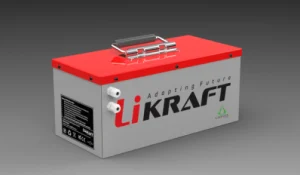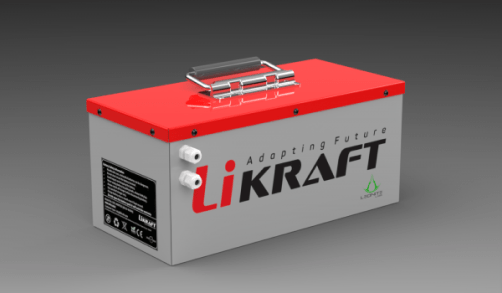The Environmental Benefits of Using Lithium-Ion Solar Batteries

As the world copes with the urgent need to combat climate change, the transition to renewable energy sources has become a focal point for governments, businesses, and individuals alike. Among the various technologies that facilitate this transition, lithium-ion solar batteries stand out as a powerful solution for storing renewable energy. These batteries not only enhance the efficiency of solar energy systems but also offer significant environmental benefits that contribute to a more sustainable future. This blog will explore the myriad advantages of using a lithium ion solar battery, highlighting their role in reducing greenhouse gas emissions, promoting energy independence, and supporting a cleaner environment.
1.Reduction of Greenhouse Gas Emissions
One of the most significant environmental benefits of lithium-ion solar batteries is their ability to drastically reduce greenhouse gas emissions. By storing excess solar energy generated during peak sunlight hours, these batteries enable users to utilize clean energy even when the sun isn’t shining. This capability minimizes reliance on fossil fuels, which are major contributors to carbon emissions. According to studies, utilizing stored solar energy can lead to substantial reductions in carbon footprints for both residential and commercial users, helping mitigate the impacts of climate change.
2.Enhanced Energy Efficiency
Lithium-ion solar batteries improve overall energy efficiency by allowing users to store surplus energy generated by their solar panels for later use. This stored energy can be utilized during high-demand periods or when sunlight is insufficient, reducing dependence on grid electricity, which often comes from non-renewable sources. By maximizing the use of renewable energy, these batteries contribute to a more efficient energy system that minimizes waste and optimizes resource use.
3.Support for Renewable Energy Integration
The integration of lithium-ion solar batteries into energy systems supports the broader adoption of renewable sources like solar and wind power. By providing a reliable means of storing renewable energy, these batteries help stabilize the grid and ensure that clean energy can be used consistently. This capability is crucial as more households and businesses transition to renewable energy solutions, facilitating a smoother shift away from fossil fuels.
4.Promotion of Energy Independence
Lithium-ion solar batteries empower individuals and communities by promoting energy independence. With these batteries, users can generate and store their own electricity, reducing reliance on external power sources and enhancing resilience against fluctuations in energy prices. This independence not only contributes to personal savings but also strengthens local economies by keeping energy dollars within communities.
5.Lower Levels of Air and Noise Pollution
The use of lithium-ion solar batteries directly correlates with lower levels of air pollution. By decreasing reliance on fossil fuel-based power plants, which emit harmful pollutants into the atmosphere, these batteries contribute to cleaner air quality. Additionally, electric systems powered by lithium-ion batteries operate much more quietly than traditional combustion engines or generators, leading to reduced noise pollution in urban environments.
6.Longer Lifespan and Reduced Waste
Lithium-ion batteries are designed for longevity, often lasting several years longer than traditional battery types like lead-acid batteries. Their extended lifespan means fewer replacements are needed over time, which translates into less electronic waste generated. Although recycling processes for lithium-ion batteries are still being optimized, advancements are being made to ensure that these batteries can be disposed of responsibly at the end of their life cycle.
7.Facilitation of Smart Energy Management
Many lithium-ion solar battery systems are integrated with smart technology that empowers users to monitor their energy consumption in real-time. This advanced capability provides valuable insights into how and when energy is being used, allowing users to identify patterns and trends in their electricity consumption. By analyzing this data, households and businesses can make informed decisions about their energy use, optimizing their consumption to align with periods of peak solar generation.
For instance, users can schedule high-energy activities—such as running appliances or charging electric vehicles—during the day when solar energy production is at its peak. This not only maximizes the use of renewable energy but also minimizes reliance on grid electricity, which often comes from non-renewable sources. Furthermore, real-time monitoring enables users to detect inefficiencies or unusual spikes in energy use, prompting timely adjustments that can lead to further reductions in consumption.
By leveraging smart technology in lithium-ion solar battery systems, users can significantly enhance their energy efficiency. This optimization not only leads to cost savings on electricity bills but also contributes to a reduced environmental impact, supporting broader sustainability goals and promoting a cleaner, greener future.
8.Resilience During Power Outages
Lithium-ion solar batteries provide backup power during outages or emergencies, enhancing resilience in communities vulnerable to natural disasters or grid failures. By having a reliable source of stored energy available, individuals can maintain essential functions such as refrigeration, heating, and communication during critical times without relying on polluting generators.
9.Encouragement of Sustainable Practices
The adoption of a li ion solar battery encourages broader sustainable practices among consumers and businesses alike. As more people invest in renewable energy solutions like solar panels coupled with efficient storage systems, there is a growing awareness of environmental issues and a collective push towards sustainability. This cultural shift fosters innovation in green technologies and promotes further investments in clean energy infrastructure.
10.Contribution to Circular Economy Initiatives
Efforts are underway to improve recycling processes for lithium-ion batteries, which will play a vital role in creating a circular economy where materials are reused rather than discarded. By recovering valuable metals and components from old batteries for reuse in new products, we can significantly reduce the environmental impact associated with raw material extraction and processing.
The environmental benefits of using lithium-ion solar batteries are profound and multifaceted. From reducing greenhouse gas emissions and promoting energy efficiency to enhancing resilience during power outages and encouraging sustainable practices, these technologies play a crucial role in our transition towards a cleaner future. As society continues to face the challenges posed by climate change and environmental degradation, embracing lithium-ion battery technology will be essential for building sustainable energy systems that benefit both people and the planet.
By investing in lithium-ion solar battery solutions today from Likraft, we not only enhance our own lives but also contribute positively to global efforts aimed at preserving our environment for future generations. The path towards sustainability is paved with innovation; lithium-ion solar batteries represent one significant step forward in this journey towards a greener world.

